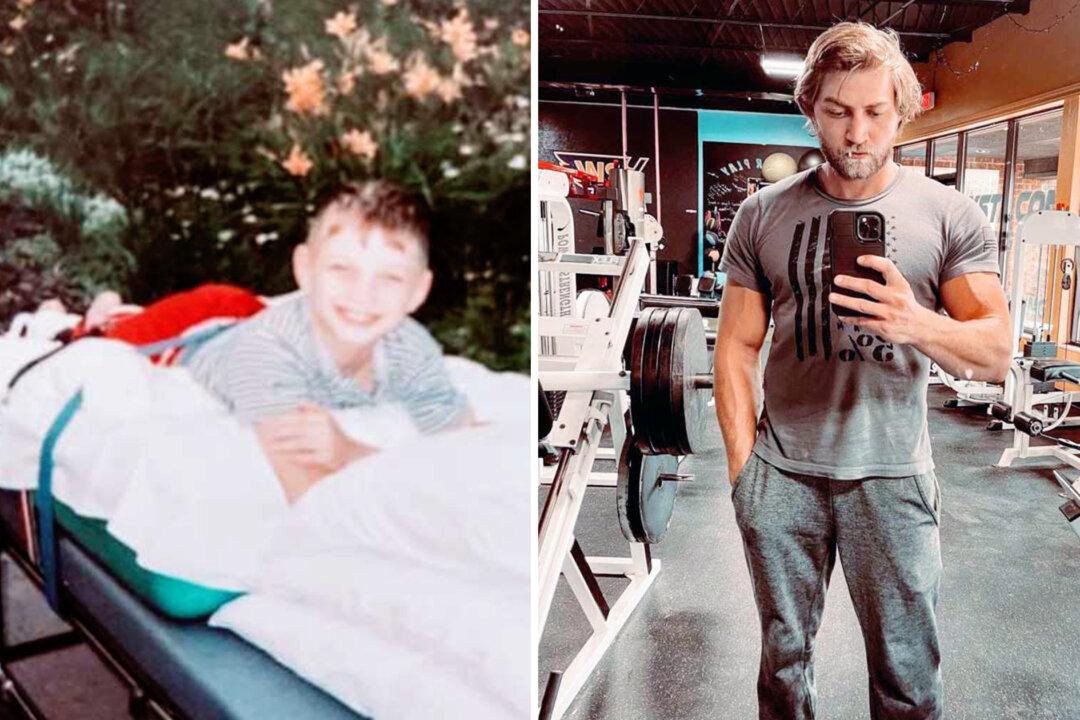A man from Missouri who was diagnosed with cerebral palsy at the age of 2 has turned his life around with determination and immense perseverance, keeping one foot in front of the other, and is now a certified personal trainer motivating others to achieve their goals.
“It’s a huge accomplishment,” 24-year-old Matthew Schlafly from St. Louis told The Epoch Times.






